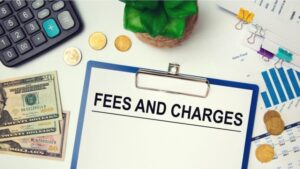Loan requirements: What documents are needed for a personal loan?
Are you planning a major purchase, covering unexpected expenses, or consolidating debts? If so, knowing what documents are needed for a personal loan can help you save precious time and dodge the hassle. From your proof of identity to credit scores, preparing beforehand allows you to streamline the process and increase your chances of approval.
Here, we break down the required documents for a personal loan and reveal how you can step up your loan application.
Personal loan documents you may need
When applying for a personal loan, lenders require certain documents to verify your information. While the requirements may be different per lender, you generally need proof of:
1. Loan application
Of course, the first thing you need is your loan application, which can vary among banks, credit unions, and online lenders. Some lenders offer online applications though others have it done in person. At this initial step, you usually need to indicate personal details – be it your contact information, birth date, Social Security number, loan amount, etc.
Based on your lender, you may also need to disclose your loan purpose and financial details, like your gross monthly income and monthly payments. Remember, ensure the information on your loan application is accurate so that you avoid issues ahead.
2. Personal identification
Other than your loan application, one of the first things lenders check is your identity. Proof of identity is important for lenders to verify your eligibility, usually your citizenship and age, and protect themselves from fraud. In most cases, you need to be a U.S. citizen or a permanent resident and at least 18 years of age.
To validate that you meet the criteria, you may be required to show any government-issued identification. You typically need two valid forms to establish your identity. These can include your driver’s license, birth certificate, citizenship certificate, passport, military ID, or other state-issued ID.
3. Address
Banks and lenders also verify your address when you take out a personal loan. Proof of address acts as a confirmation of your living situation and stability. While specific requirements may vary, lenders commonly accept utility bills, lease or rental agreements, and mortgage statements. Sometimes, you may also submit your proof of home or vehicle insurance, bank or credit card statements, property tax receipts, and voter registration card.
4. Income and employment
Another factor lenders confirm is your capacity to pay back your personal loan. So, you need proof of steady income and employment. These details help lenders gauge if you can afford your loan and whether or not you can meet your monthly payments.
If you’re employed, lenders may require documents like W-2s, 1099s, recent pay stubs, bank statements, and tax returns. Also, prepare your employer’s contact information because some lenders may ask for it so that they can verify your employment details. But you may provide your bank statements, 1099s, and tax returns if you’re self-employed.
Other details you may need
Lenders may also gather the following details during your application, so preparing them beforehand can help you avoid delays.
1. Credit score
Your credit score is a window to how responsible you are as a borrower. That said, lenders review your credit score to assess your likelihood of staying current on your loan payments. Based on your score, which mostly ranges from 300 to 850, they measure your creditworthiness. As a rule of thumb, the higher score, the better.
It’s always good to review your credit score before applying for a loan. Through this, you can have an idea of your standing and options. Good credit scores typically help you qualify for better interest rates and terms. Meanwhile, the opposite tends to happen when your score is in the lower range.
2. Personal loan purpose
Some lenders specialize in specific types of loans, like debt consolidation, unsecured loans, bad credit loans, personal lines of credit, etc. So, clarifying the purpose of your personal loan helps them suggest the best product for you. Before applying, be prepared to explain how you plan to use the loan.
Some lenders limit where you can use your funds even though personal loans have flexible usage. In some cases, you can’t use your personal loan to pay for student loans or business expenses. Letting lenders know the amount you need and having a valid purpose for borrowing lift your chances of loan approval.
3. Monthly expenses
Lenders also often ask what your current monthly expenses are. These include your housing, utilities, car loan payments, insurance premiums, student loans, credit card balances, and others. They then subtract these costs from your monthly income. This way, they can have an idea if you can comfortably afford your loan on top of your other bills.
How to qualify for a personal loan
Getting a personal loan can be easy as long as you meet your lender’s eligibility criteria.
Meet the credit score requirements
Each lender has different credit requirements. But overall, lenders favor borrowers with good credit because it shows their ability to manage and repay debts. For instance, if you score 815, lenders may offer you their best products and terms. Yet, getting a loan can be more difficult or you may have limited options if your score is in the poor range.
Prove you can pay back the loan
Aside from your credit score, lenders want assurance that you can afford the loan. So, make a strong case that you can pay back your loan.
Though requirements vary, show that you have steady employment and a reliable source of income. Besides those, you can also show proof of assets, like your car titles, stocks and bonds, investment accounts, and more. With these, lenders can be confident to extend a new loan or credit to you.
Find a lender that matches your situation
Pay attention to different lenders to find the one that considers your circumstance. Banks have competitive rates but require higher credit standards. Then, online lenders offer convenience and flexibility but may give higher rates and fees. Credit unions provide flexibility and lower rates, but you need to be a member first.
Say you have a limited credit history. Rather than applying to traditional banks with high credit requirements, go after credit unions or online lenders that may willingly work on your case. That being said, don’t bet all your chances on one lender. Search for the one that meets you halfway.
What to do if your personal loan is rejected?
If your personal loan application is rejected, not all is lost. Take time to talk with your lender about the reason for rejection. Is it because of a low credit score, insufficient income, or a high loan amount? From there, you can work on improving your loan application.
Work on your credit score
One typical reason lenders deny loans is a low credit score or bad credit history. So, if you get rejected because of your credit standing, work on improving this part. Check your credit report for mistakes, and report any errors you discover.
Then, ensure you make timely payments and pay off any outstanding debts. Know that your payment history makes up 35% of your credit score. Because of this, prioritizing your current balances can make a huge difference in your score.
Reduce your debt-to-income ratio
Your debt-to-income (DTI) ratio compares your monthly gross income to your monthly expenses. You can calculate it by dividing your total monthly debts by your gross monthly income. A low debt-to-income ratio generally shows lenders that you can comfortably pay your loan.
Say you earn $5,870 a month and spend around $3,112 of it – divide $3,112 by $5,870 and multiply it by 100. Meaning your DTI ratio is 53%. If your DTI ratio is high, try to decrease it before taking out a new loan. You can do this by paying off current debts, improving your income, and avoiding extra debts.
Explore multiple lenders
Don’t limit yourself to one lender. Research and compare different offers from multiple lenders to find the rates and terms that suit you best. Each lender has different criteria, so checking out a range of options allows you to pick which one will likely approve your application. If you have a low credit score, consider lenders that specialize in bad credit loans to boost your chances of loan approval.
Get a secured personal loan
You may also think about getting a secured loan. While unsecured personal loans are more common, some lenders offer secured personal loans that are backed by assets, like your savings, CD, etc. A secured loan may lift your chances of approval and favorable rates by offering your asset as collateral. Still, keep in mind that lenders can seize your asset if you default on your loan.
Apply with a co-signer
Some lenders may work with you even if you have a low credit score or limited credit history if you apply with a co-signer. A co-signer is often a close friend or family who accepts equal responsibility for your loan. So, to build your chances of obtaining a loan, your cosigner should have a strong credit profile or income.
But since cosigners are legally obligated, any late or missed payments also affect their credit. So, if you miss a due date, this won’t just go into your credit report but also your co-signer’s.
Conclusion
Applying for a personal loan can be smooth and easy if you prepare the required documents ahead. So, gather your loan application, proof of identity, income, address, and other loan details. Not only will this help speed up your application, but it will also increase your chances of loan approval.
Frequently asked questions
What do I need to take out a personal loan?
To successfully apply for most personal loans, you usually need to complete a loan application and provide proof of identity, address, and income. These documents then help lenders assess your financial situation and eligibility for a loan.
Is it hard to get accepted for a personal loan?
Getting a personal loan is generally straightforward, but lenders require certain information, such as your credit report, income, employment status, and current debt obligations. If you have promising credit and show you can afford the loan, securing a personal loan may be quite easy. However, you may struggle to qualify for a loan if you don’t meet lenders’ criteria.
How long does it take to get a personal loan?
The time it takes to obtain a personal loan varies depending on the lender. In general, online lenders tend to provide a faster loan process – often same-day approvals and funding. However, traditional banks and credit unions may take up to seven days to process and fund your loan.
What disqualifies you from getting a personal loan?
Many factors can lead to personal loan rejections. Depending on the requirements and your situation, it can be from poor credit scores, bad credit history, or a high debt-to-income ratio. In other cases, unreliable income and employment may also lead to denial of credit. If you have missing loan documents, lenders may reject your application, too.
What is a good credit score to get a loan?
Typically, you may qualify for a loan if you have a credit score of around 600. But lenders generally prefer borrowers with good or excellent credit scores of 690 and above. If you have a high credit score, lenders may offer you favorable interest rates and terms.
While a good credit score is beneficial, some lenders are willing to work with borrowers with bad credit scores. However, bad credit loans usually come with high interest.
Carla is a skilled copywriter at BestFind with a background in marketing and communications. She specializes in reviewing personal loan and finance products to help readers navigate the complex world of personal finance.
Latest posts

What is debt consolidation, and does it hurt your credit?
04.07.2023

What is an auto loan origination fee?
05.07.2023

What is a personal loan origination fee, and can I avoid it?
04.07.2023
